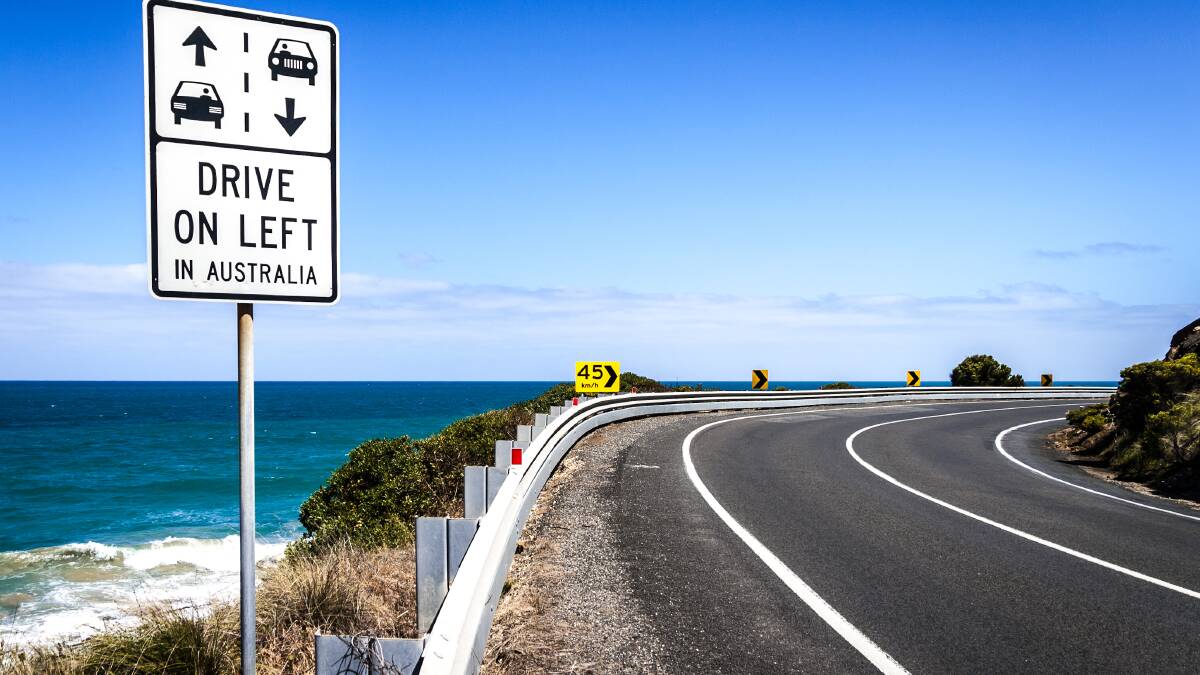What to consider when preparing for your first Victorian road trip

This is branded content for RACV.
Often referred to as Australia's 'Garden State', Victoria is renowned for its abundance of scenic drives and winding coastal highways.
From the Great Ocean Road to the Great Alpine Road and all the rural highways that snake in between, there are so many road trips that you could embark on at the drop of a hat - especially if you're living in the greater Melbourne region.
But as is the case when venturing out into any section of rural Australia, it's imperative that you make sure you're fully prepared before heading out on the open road.
Regional Victoria can feel pretty isolated when you're in between Point A and Point B, and the last thing you want is to find yourself stranded with minimal mobile reception and no solid understanding of where you might be.
So what should you keep in mind when preparing for a road trip in Victoria?
We're here to answer this precise question today, by outlining all the key considerations you should make before heading out on your first Victorian road trip.
Make sure your car is serviced and insured
Naturally, securing car insurance and ensuring your car is in good working condition should come above all else. As a general rule of thumb, you should take your car in for servicing in the fortnight leading up to a lengthy road trip. Doing so can help ensure that your car's engine is up to the task, and that all other components of your vehicle (i.e. your headlights, brake lights, and tyre pressure, window wipers, etc.) are ready as well.
Similarly, securing car insurance and roadside assistance can also help reduce your risks of experiencing a costly breakdown in the middle of nowhere. Towing services and emergency repairs in regional areas can be enormously expensive, so equipping yourself with the right car insurance is crucial to keeping you, your fellow travellers, and your vehicle completely safe during your Victorian road trip.
Familiarise yourself with Australian road rules
If you're not a Victorian resident or may even be an international traveller, then it's imperative that you familiarise yourself with Australian road rules well before you get behind the wheel and head out of the Melbourne region. The basics of driving in Australia include keeping to the left, staying under speed limits, and respecting road signs - the same as you would do anywhere in the world as a responsible driver.
You can find a full list of Victorian road rules here, so get to studying before you leave on your big adventure. And if you're feeling a little out of your depth, then why not book a few sessions with a Victorian driving instructor in the leadup to your big trip? This can be a great learning experience for those who may be driving with an international licence and are hoping to secure a little extra guidance before embarking on a solo trip down a Victorian highway.
Invest in a roof rack for your car
If you're looking to catch a few waves at some beaches along the Great Ocean Road or even take your bike out for a ride in the Yarra Valley, then chances are you can greatly benefit from installing a roof rack to your car. That way, you'll be able to safely transport your surfboards, bicycles, and even boats, canoes, or kayaks. Roof racks with tubs can also help you save on overall cabin space in your car, which is a game changer for larger families who may need all the space they can get.
Just be sure to do a little research when selecting the right roof rack for your vehicle. That way, you can better your chances of finding a car rack solution that can house all the active accessories your family needs to make the most of your great Victorian road trip.
Map out your travel route and itinerary ahead of time
Planning out your travel route well ahead of time is actually one of the most overlooked items on any road trip safety checklist. The reason for this is simply because so many excited travellers just tend to forget that they're travelling to places they've never visited before and aren't overly familiar with. And even if you are using a dedicated GPS or mobile phone to manage your in-car navigation, technology can still let you down at the most inopportune times.
With that, it's highly recommended that you download your route information ahead of time on Google Maps or Waze. Keeping a Melways in your car also won't hurt at all. Just remember to pack a torch too, just on the off chance that you break down during evening hours and find yourself having to pore over the road atlas in lower light conditions.
Familiarising yourself with your rough travel routes ahead of time can also reduce your risks of missing a turn and burning fuel unnecessarily. It can also help you stay confident on the road.
Check weather forecasts before you depart
Finally, speaking of staying confident on the road, you should keep in mind that Victoria does have wetter weather conditions than other Australian states. If you do find yourself driving in lower light conditions and in harsher weather, don't feel pressured to keep on going. If you want to take a little pit stop, then you should feel free to do so.
Thankfully, there are plenty of truck stops all along Australia's rural highways, so keep an eye out for those bright blue signs that denote a turnoff point with a petrol station (or 'servo') and a McDonalds ('Maccas').
It's also recommended that you check weather forecasts well before you hit the road to further reduce your chances of driving through an untimely hailstorm or torrential rainfall. You don't want to experience the sheer terror of hydroplaning on a tree-lined rural highway.
With all these considerations in mind, you should find that your first Victorian road trip can go off without a hitch. Just remember to enjoy the journey just as much as your destinations, and to take plenty of photos at all the lookout points that you're bound to find along your explorations.



